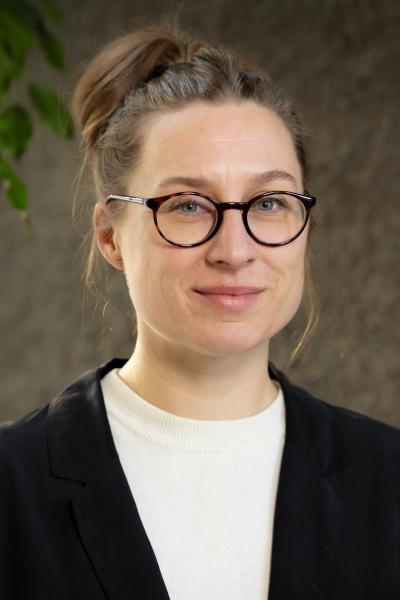Louise Schou Therkildsen
Senior Lecturer/Associate Professor at Department of Literature and Rhetoric
- Telephone:
- +46 18 471 61 86
- E-mail:
- louise.therkildsen@littvet.uu.se
- Visiting address:
- Engelska parken, Thunbergsvägen 3 P
- Postal address:
- Box 632
751 26 UPPSALA
Download contact information for Louise Schou Therkildsen at Department of Literature and Rhetoric
More information is available to staff who log in.
Short presentation
Decolonizing the North: Communal Norms and Public Memory in Transition (ongoing, Åke Wiberg)
The project explores contemporary literary accounts of the colonization of Greenland and Sápmi, focusing on their renegotiations of public morality and memory.
Retoriska formationer av europeisk identitet (2022)
In my doctoral thesis, I examine five examples of collective identity formation within the EU in a contemporary historical and constitutive rhetorical perspective.
Keywords
- collective identity formation
- constitutive rhetoric
- european union
- identity politics
- postcolonial studies
- public memory
- rhetorical criticism
Research
My doctoral thesis, A European State of Mind: Rhetorical Formations of European Identity within the EU 1973–2014, was defended on March 25, 2022. It is available for download here.
Abstract:
European identity has become a central issue in the EU’s political imaginary. In recent years, European identity—and related notions of a European destiny, European culture, and a European narrative—has been deployed as a weapon against the rise of the political far-right across Europe. Epideictic rhetoric is thus at the heart of the EU’s political debate.
The purpose of this study is to investigate how the EU works rhetorically with collective identity formation and to examine the implications of such formations for both the EU and its citizens. Through rhetorical and topological close readings, the study explores these practices of identity formation from a thematic as well as a diachronic perspective (1973–2014). It does so with the theory of constitutive rhetoric as its framework even as it proposes to extend the theory’s subject field in terms of constitutive means, temporal imaginaries, and projected practices.
Each analytical chapter addresses a different aspect of the EU’s constitutive rhetoric: The transition from the formation of an institutional identity to the formation of collective identity and how the means of identity formation have both altered and accumulated; the EU’s historiographical construction of a new narrative that reaches beyond the lifetime of the union in search of a more authentic past to use as a foundation in present and future mythology. This narrative hinges on the founding narrative of peace that enables the EU to act as a normative exemplum in Europe and beyond; and, finally, the visionary rhetoric of eternity and omnipresence that incorporates the whole world into its own imaginary, while simultaneously projecting a specific set of norms that constrains the agency of the model EU citizen: the Eurostar.
The study concludes that throughout its practices of collective identity formation, the EU is positioned as an ambivalent rhetorical agent. On the one hand, the EU wishes to become recognised and mythologised as the Subject—the heart of Europe, a state of mind, a symbol of transcendence, peace, and tolerance. On the other, to be viewed as the silent benefactor and facilitator of peace and deliberation, the arbiter of soft, nonideological power. The Eurostar fills the important function of confirming the self-interpellation of the EU’s ambivalent position and embodying the culture of nonideological deliberation in the face of the ideology of others.
Publications
Recent publications
- A European State of Mind (2023)
- Shadows in the Cave (2022)
- Introduction: On the Art of Cave Guiding (2022)
- Pandemiska reflektioner (2022)
- De pandemiska reflektionernas kranka blekhet (2022)
All publications
Articles
Books
- Shadows in the Cave (2022)
- Pandemiska reflektioner (2022)
- A European State of Mind (2022)
- Rhetorical formations of European identity (2019)
- Can a person be illegal? (2017)
Chapters
- Introduction: On the Art of Cave Guiding (2022)
- De pandemiska reflektionernas kranka blekhet (2022)
- A Hierarchy of Crises (2022)
- Digital tekstanalyse: Fjernlæsning (2020)
- Becoming a citizen: Knowledge and identity in European textbooks for citizenship tests (2016)
Reports

